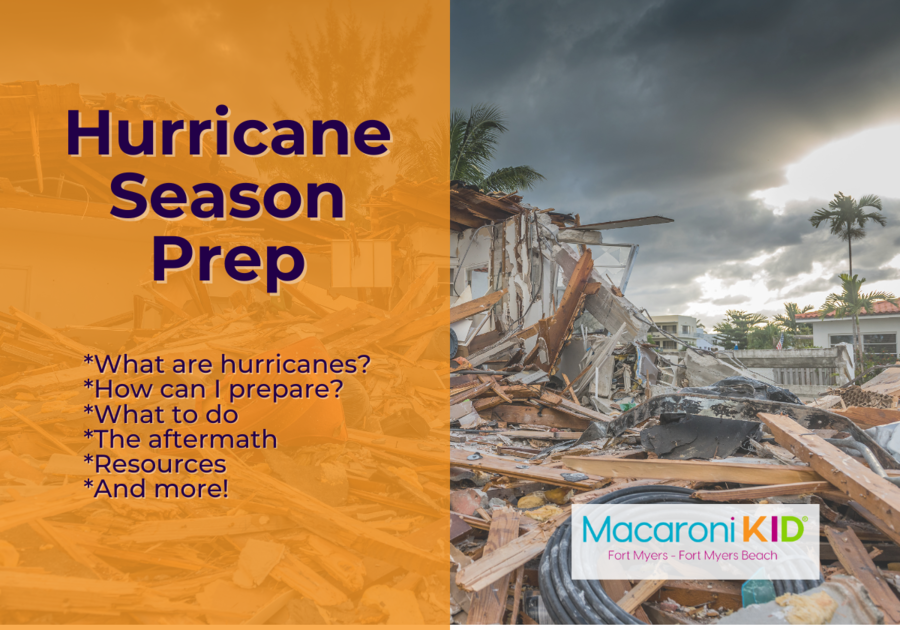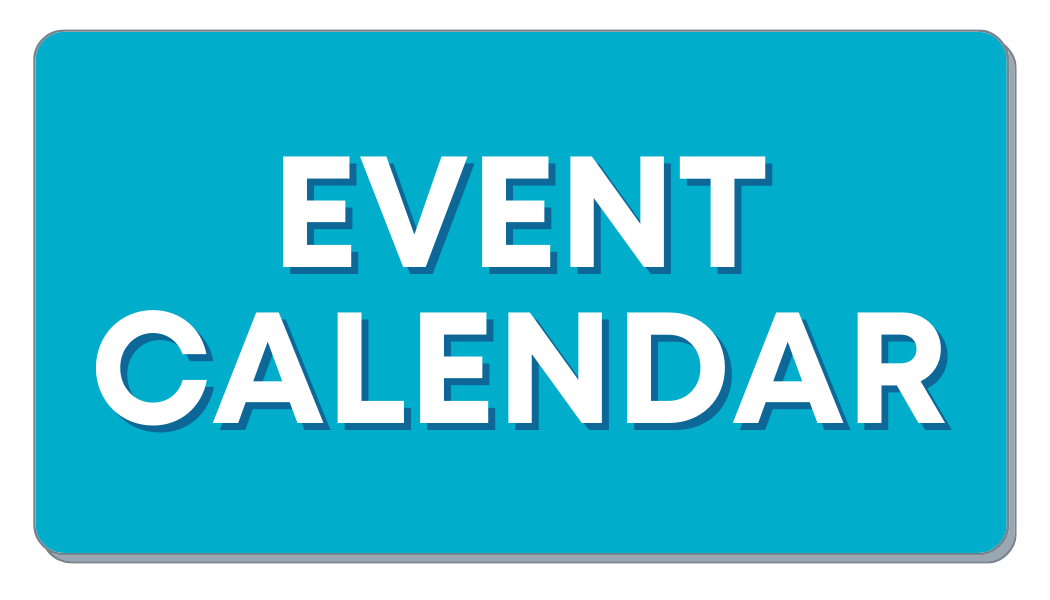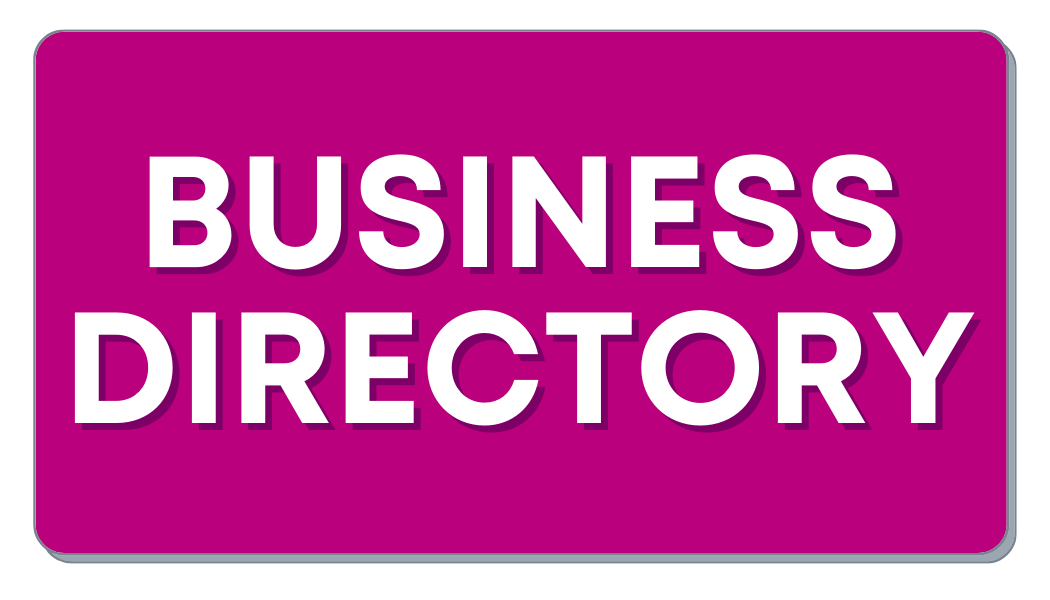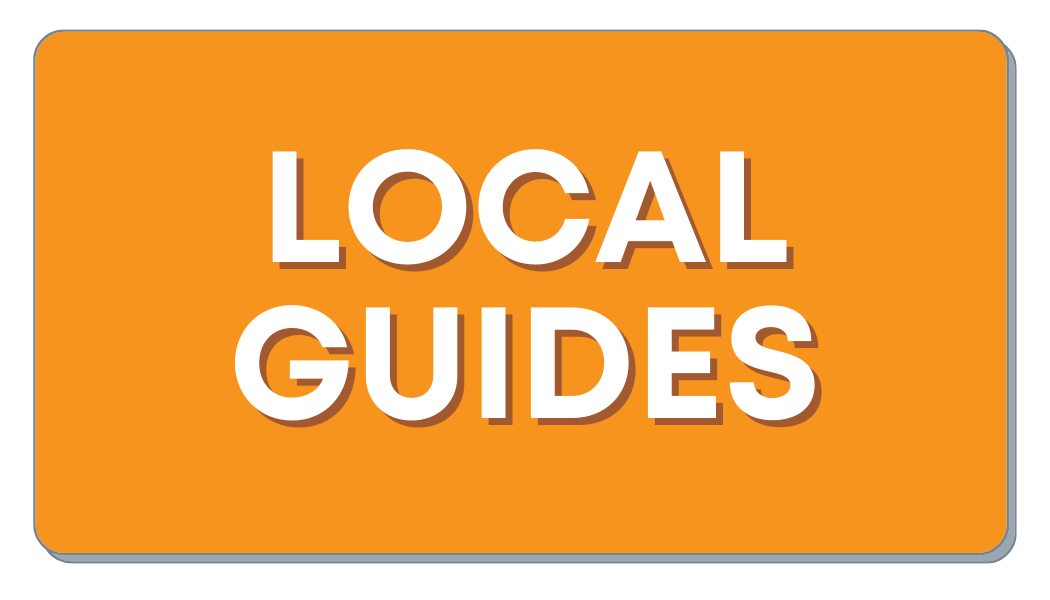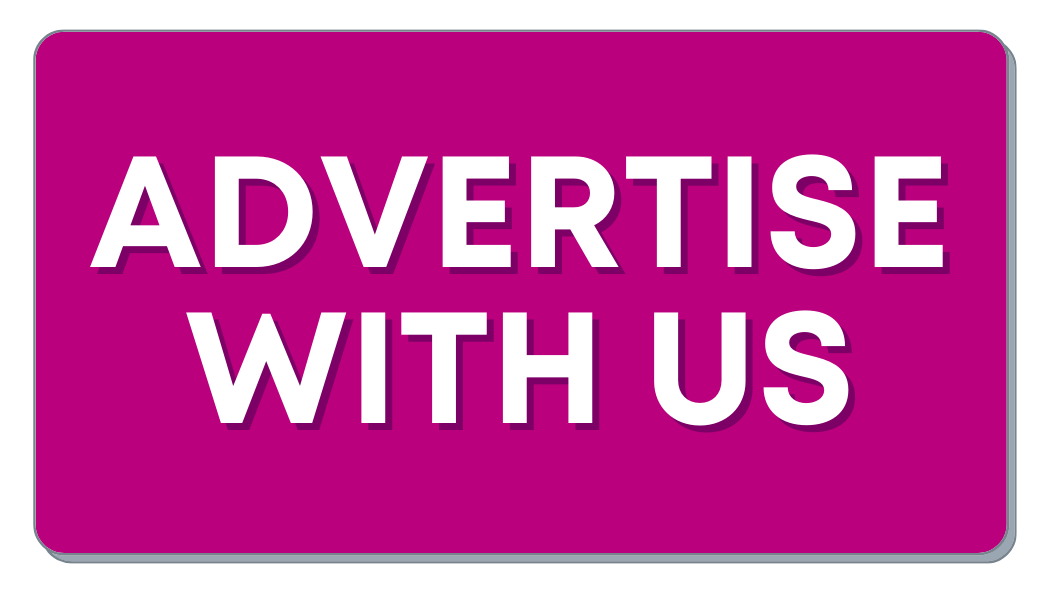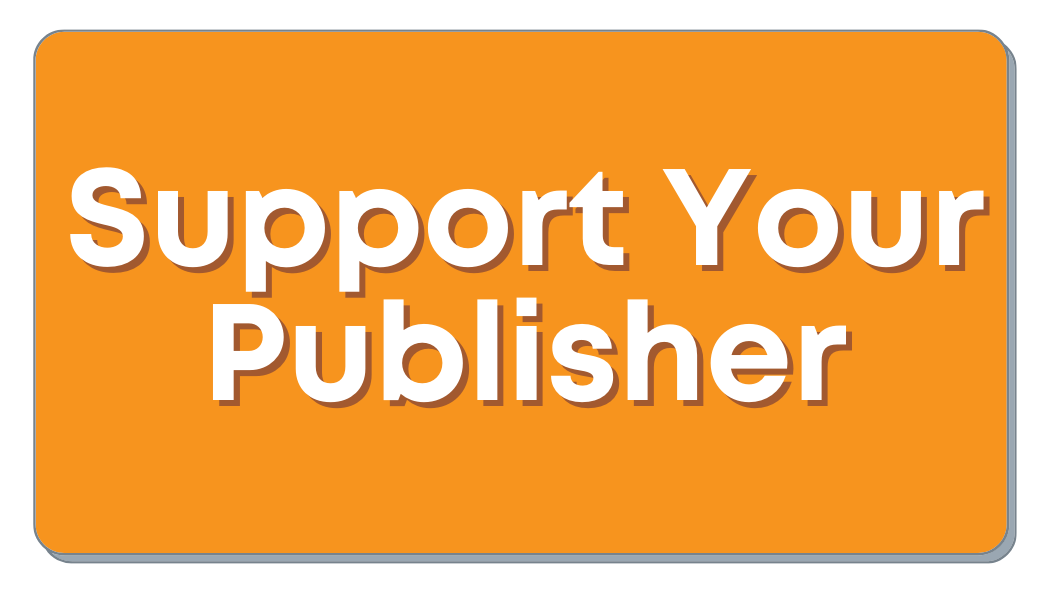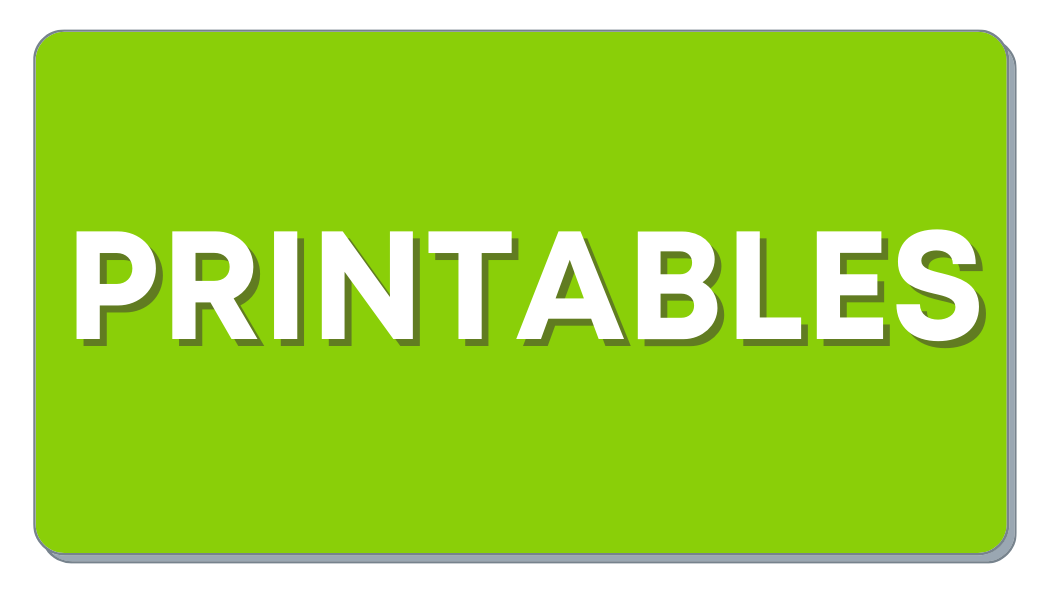We all know that the effects of Hurricane Ian still linger in more ways than one - folks have moved away, some lost their homes, some are still fighting insurance companies, insurance and property taxes have skyrocketed, etc. We are so proud of how strong Fort Myers - Fort Myers Beach residents are, and so proud of how much we pulled together after this disaster. This is a guide to help our whole Fort Myers - Fort Myers Beach community prepare for this year's hurricane season as best we can.
Here are some tips on recovering emotionally from a disaster - please seek help if needed - there are many mental health resources available to you!
If you are willing and able to help during these tough times, considering donating your time, money, or resources to helping others in need! Here is a small list of places that are accepting donations and volunteers for a good cause.
The official Atlantic Hurricane Season is June 1 - November 30 of every year. Like 2023, 2024 is predicted to start earlier and last longer than the "average" hurricane season. The National Hurricane Center and AccuWeather have released early predictions for the 2024 hurricane season, and they say it may be a "blockbuster" hurricane season due to La Niña and historically warm ocean temperatures.
AccuWeather predicts a very active back-half of the season around late summer, when La Niña kicks into gear. Their Long-Range Expert, Paul Pastelok, voiced his early concerns about the Gulf Coast having a higher risk of direct impacts from tropical storms. The full 2024 Atlantic Hurricane Season Forecast is expected to be released in March.
Colorado State University also has seasonal hurricane forecasting, but they won't officially release their 2024 forecast until April 4, 2024 at 10am ET.
Are you prepared? Whether you are a long time Florida native, or new to the hurricane scene, there is always something extra you can do to ensure you and your family are safe during hurricane season.
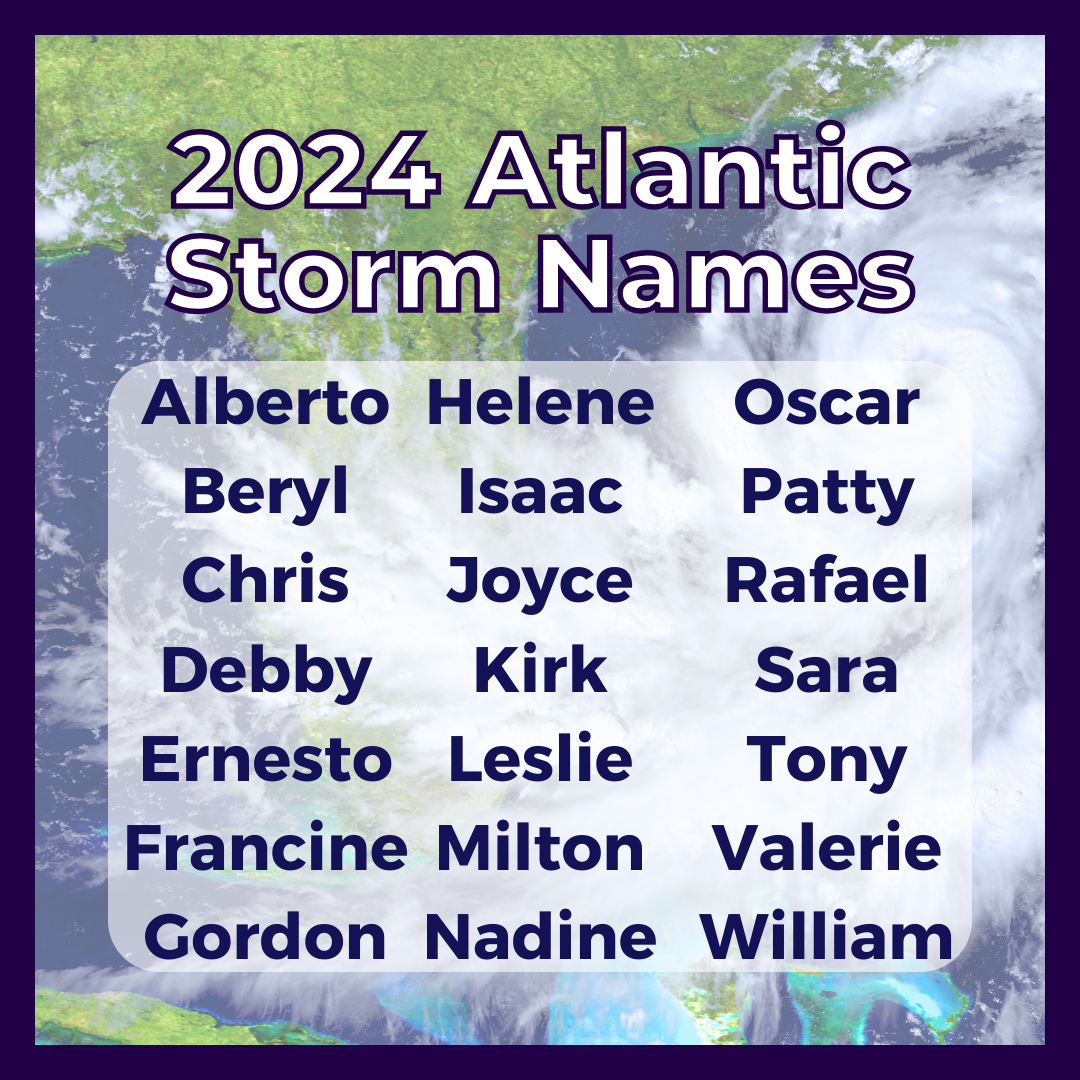
What are hurricanes?
A tropical cyclone is a low-pressure weather system that rotates with thunderstorms. A tropical cyclone does not have a storm front, where a high and low pressure air mass meet.
- Tropical Depressions have winds that do not exceed 38 mph.
- Tropical Storms have winds between 39 - 73 mph.
- A hurricane occurs when tropical storm winds reach 74 mph.
Hurricanes are categorized by wind speed, from Category 1 (lowest potential for property damage) to Category 5 (highest potential for property damage). They begin in the Atlantic Basin (Atlantic Ocean, Caribbean Sea and Gulf of Mexico), the Eastern North Pacific Ocean, and sometimes the Central North Pacific Ocean.
Between 1991-2020, there is an average of 14 named storms in the Atlantic Basin per year, 7 hurricanes, and 3 major hurricanes. The record holder is 27 named storms, from 2005, 14 of which were hurricanes. The prior record holder for named storms was 21 in 1933. The prior record holder for hurricanes in one year was 12 hurricanes in 1969.
How should I prepare for hurricane season?
- Sign up for hurricane alerts, Town of FMB Code Red Alert System, and download the FEMA app.
- Determine your wind and water hazard risks and flood zone.
- Create an evacuation plan. Don't forget to include your pets in this plan - check out these pet friendly shelters.
- Create a Family Emergency Plan. Where will you meet if you get separated? Who are your emergency contacts?
- Check out the shelters in your area, if that is an option.
- Create an emergency supply kit with supplies that fit each household member's needs (i.e. kids, special dietary needs, disabilities, medical supplies, medications, etc).
- If you have medical equipment that requires electricity, you can reach out to your electricity provider to potentially get added to a priority power restoration list
- If you have special needs, there are free shelters (including transportation) that you can apply for ahead of time. You must be registered before the onset of a storm.
- Ensure you have important documents with you, including your ID and an emergency ID for your child as well.
- Verify that you have flood insurance - this is additional, not usually included in the standard homeowner's or renter's insurance plan. You can purchase one here (30 day waiting period, so the earlier the better)!
- If you have the means to, hurricane retrofit your home (impact resistant windows, hurricane rated garage door, roof, structures in your yard, etc).
- Take a video/photo inventory of all your belongings for insurance claim purposes.
- Microchip/license your pets - if they get separated from you, this is one way to help bring them home!
- Identify utility shut offs for your house- water, electric, gas.
- Inspect trees and limbs. Ensure they are kept tidy well in advance of a storm. Lawn debris cleanup trucks will not come when a storm is near, and lawn debris on the side of the road will be a hazard during a storm.
- Create a savings account for emergencies (to include up front costs like: gas, food, hotels, etc) after a disaster.
- Sign up for direct deposit of all income/disability/social security checks - you wouldn't want a delay in income if your check is lost/delayed/destroyed in the mail due to a disaster.
A hurricane is on its way, what now?
- Help your neighbors! If you have a neighbor who is unable to prepare or needs help, do your best to assist them, if you can do so safely.
- Text “shelter” and your 5-digit ZIP code to 43362 to receive a list of nearby shelters within 200 miles of your ZIP code. Check rules for pet-friendly shelters.
- Decide whether you're going to evacuate or stay. If local authorities announce a mandatory evacuation, it's best that you do!
- If evacuating, pack your emergency supplies in the car and turn off all utilities.
- If you cannot evacuate and must stay home, prepare your home. Clear out debris from drains and gutters, fill sand bags, shutter your windows and doors, fill your bathtubs with water so that you can flush toilets or wash hands, fill your fridge with ice, use all perishables, etc. Move your supplies into a "safe room," elevated and away from windows and doors.
- Bring in all outdoor furniture/toys that are not secured. This will avoid them becoming hazards with the wind and water.
- Ensure you have an out of town contact that you can give updates to your whereabouts and wellbeing during an emergency.
- Keep your cell phone charged until/if you lose power.
- Ensure your house address numbers are visible from the street (i.e. mailbox, front of house, next to front door, etc).
- Fill up your gas tank, check tires and fluids.
- If you have a swimming pool, add extra chlorine to it.
The hurricane has passed, what now?
- Check with local authorities to ensure it is safe, and see if any special instructions are being given.
- Never drive or walk through flooded roadways.
- Make sure to wear proper Personal Protective Equipment (PPE) when attempting to clean up. Be aware of mold and other debris. Don't let those who are immuno-compromised or children help with cleanup.
- Always cleanup using the buddy system. If no one is available to assist you, ensure that a neighbor knows where you are and what you're doing. Check in with them.
- Do NOT touch electrical equipment if wet or if you are in water. Turn off electricity at the breaker if it is safe to do so.
- Do NOT wade in the floodwaters. There can be dangerous pathogens, creatures, chemicals, waste, downed power lines, etc.
- Document damage with pictures/video. Contact your insurance company asap, as insurance companies and repair companies will get booked out, fast!
- Beware of unlicensed contractors and scams.
- Do not sign repair contracts until you've verified their license is active and their quote is reasonable.
- Do not be pressured into signing the quote/contract.
- Do not pay for services in full, until after the work is completed to your satisfaction.
- Ensure contractors have gotten proper permits prior to work.
- Power restoration will take time - usually the grids with hospitals get restored first.
- Water supplies may be unsafe to drink- boil water from the tap before using. Sewer lift stations may be down- you may have backup in your drains.
- Text or use social media to alert everyone that you are OK after a disaster. Save the phone calls for emergencies, as the phone services may be down/slow.
- If trapped by flooding, go to the highest level of the structure. Do NOT go in a closed attic space, as rising flood water could trap you.
- Be aware that wildlife may also be seeking dry ground- fire ants, rodents, snakes, etc.
- If you have a generator, be sure to use it safely!
Resources:
Emergency Printables (Child Emergency ID, Hurricane Supply List, Family Emergency Plan)
Lee County Emergency Operations
Want to get in touch with us? Contact your publisher at mackidfortmyersbeach@macaronikid.com.
*This link contains an affiliate link and Macaroni Kid Fort Myers - Fort Myers Beach receives a commission from purchases made through this link- at no additional cost to you!



6/8955/22988/27-2.28.24

